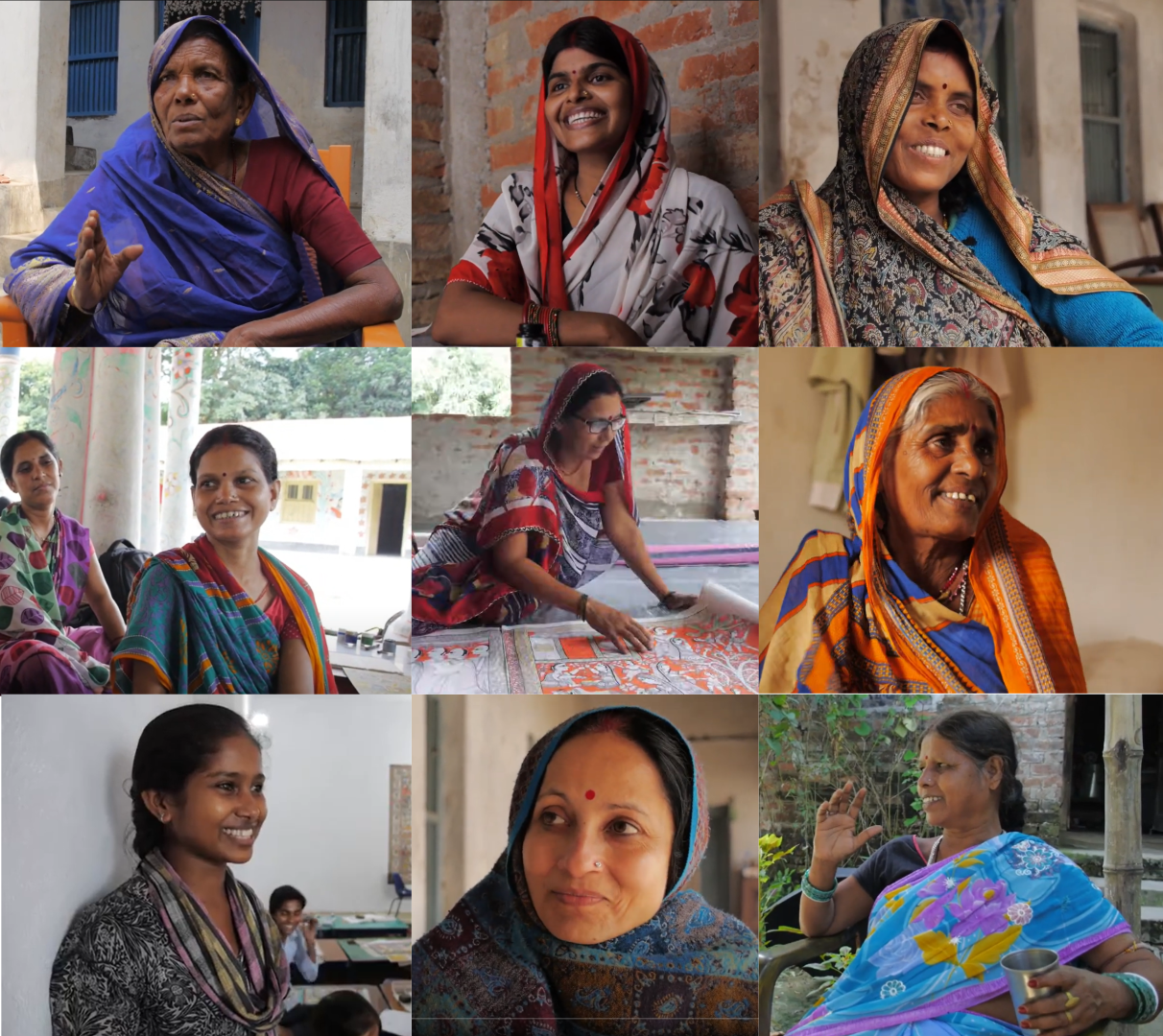
Primary researchers: Coralynn V. Davis
Date: 2016 – present
View the archive: Mithila Story Archive
This archive of Maithil women’s tales is intended to preserve this art for generations to come – for members of the Maithil and broader South Asian community, for scholars and educators of oral traditions in South Asia and around the world, and for the general public.
In Mithila today, gender norms are very much in flux due to influences of new globalized technologies of communication, along with other economic, political, educational and cultural transformations, including outmigration. Davis’ research reveals that these very same forces have already resulted in the displacement, and will likely eventuate in the loss, of women’s cross-generational oral storytelling as a way to pass down cultural knowledge and values. Maithil women’s stories for centuries have functioned as a locus for the expression and dissemination of cultural value and history. The disappearance of this women’s oral storytelling is no small loss, given the unique artistry, as well as perspective, humor, pathos, and insight embedded in the practice. They promulgate understandings and dispositions toward action enabling Maithil women to navigate (including critique) their significantly constrained and dominated lives in life-affirming and sometimes life-expanding ways.
The archive contains a video- and audio-recorded storytelling sessions, written transcriptions in Devanagari script, written translations into English in Roman script, and English subtitles on the videos. Each story identifies the storyteller, the location of the storytelling session, and the date.
The research on which this archive is based has been supported by a Fulbright Senior Research Grant in Nepal (2003-2004), a Fulbright-Nehru Academic and Professional Excellent Research Award in India (2016-2017), and a Patrimonies Grant from the the Gerda Henkel Stiftung (2020-present). The initiative has also been supported financially and logistically by Bucknell University.
Transcription and translation has been provided by Neeraj Kumar and Nidhi Anand, Dr. Pranav Prakash, and M.S. Suman. Translation edits have been provided by Coralynn V. Davis. Video file creation and file administration has been provided by Carlos Gómez.